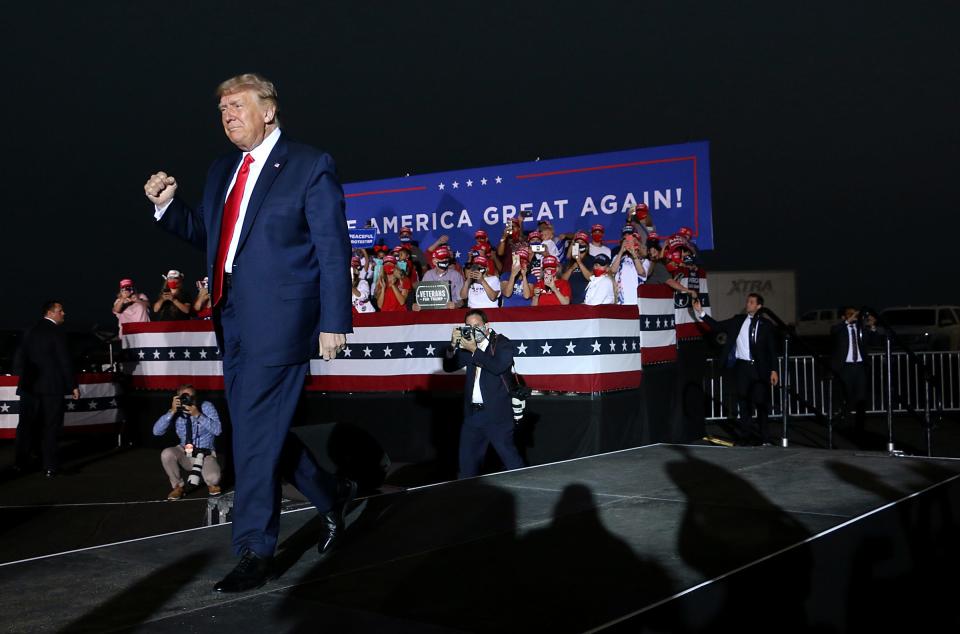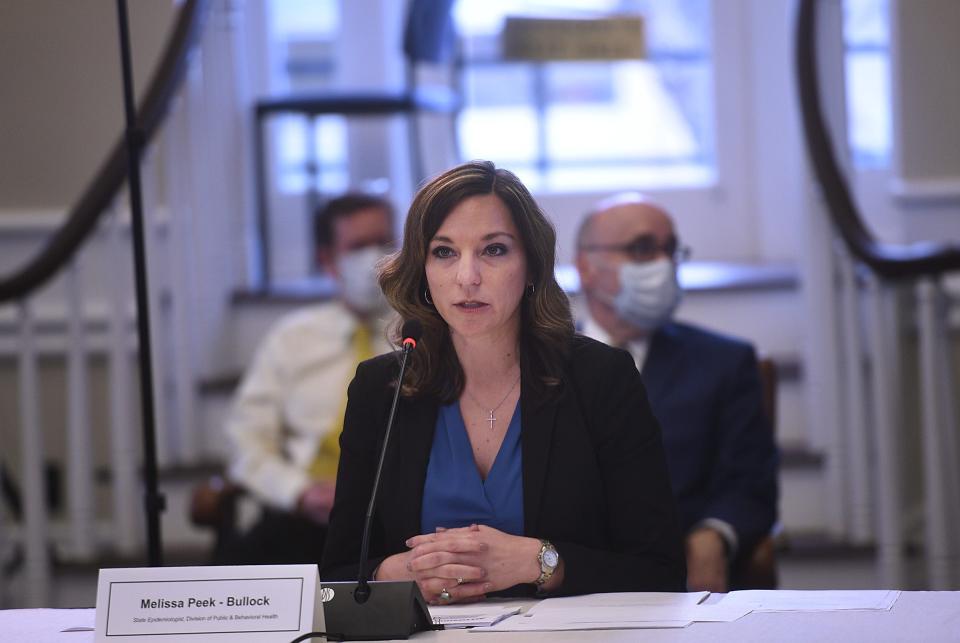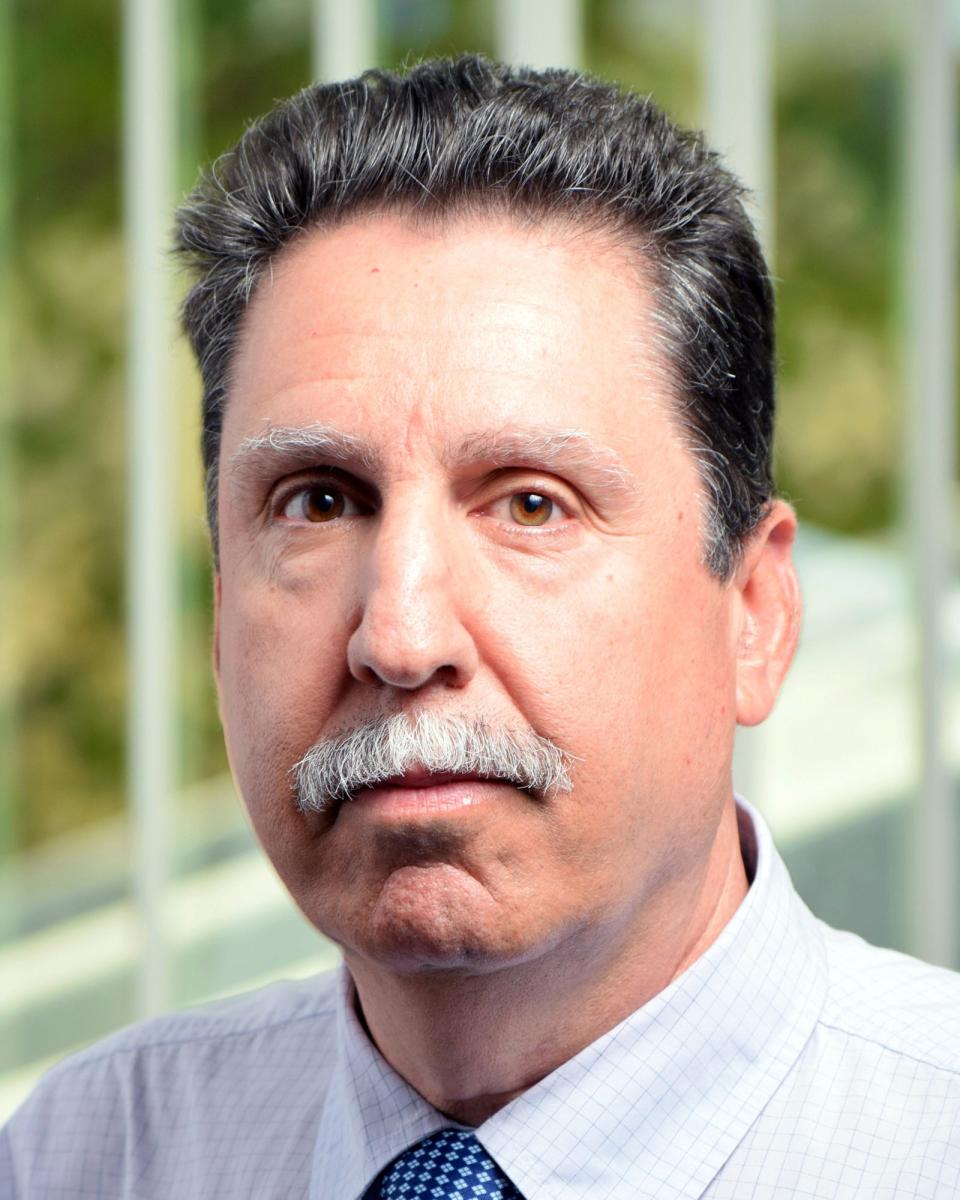When COVID testing was scarce, CDC director called in favor to help Nevada GOP leader
UPDATE: This story has been updated to reflect additional information.
Dr. Robert Redfield called Nevada’s chief medical officer on a Saturday night in early March with an extraordinary request.
Adam Laxalt, the former attorney general of Nevada until 2019 and booster for President Donald Trump, believed he was exposed to the coronavirus while attending the Conservative Political Action Conference in Maryland.
But he was not showing symptoms and could not get approved for a test through a local hospital back home, according to interviews and internal communications USA TODAY received through records requests. On the phone call, Redfield asked the medical officer, Dr. Ihsan Azzam, to get it done.
Azzam, who had never met or spoken with Redfield before, was stunned. At the time, testing capacity around the country was scarce and people without symptoms often were not a priority.
“It wasn’t the protocol,” Azzam told USA TODAY in an interview. “This is a VIP person. We got a call from the CDC director who is advising that we test him for COVID-19.”
The next morning, Azzam contacted the county health department in Reno and fast-tracked Laxalt’s test. Redfield called back hours later to thank him, Azzam said.

The special treatment is a stark example of how political influence has penetrated the CDC during the COVID-19 pandemic, creating challenges for local health authorities. It came at a time when his agency knew thousands of Americans needed testing but could not get it due to supply shortages.
Redfield’s intervention on Laxalt’s behalf also sheds light on how some of those with powerful connections — including celebrities and star athletes — have received preferential care since the beginning of the crisis. “That’s privilege,” Richard Whitley, director of the Nevada Department of Health and Human Services, told USA TODAY.
Whitley also acknowledged that there may have been added confusion at the hospital originally over whether or not Laxalt was requesting a test for COVID-19 or the flu.
Laxalt, who is the Trump campaign's Nevada co-chair, responded in an email: “After CPAC it was clear I met the criteria for testing. I wanted to make sure I wasn’t a risk to my community. I obtained a rapid test and result. Fortunately, I tested negative.”
After publication, Laxalt told USA TODAY in an email that he was feeling ill at the time and a test was warranted. He shared a doctor's note, in which his physician stated he believed Laxalt met the criteria to receive a test because he had been exposed and showed upper respiratory symptoms.
"Testing at that time was difficult as testing capacity in our region was still limited," his doctor wrote.
It’s great to be back at #CPAC2020 and visiting backstage with some great friends, including @DonaldJTrumpJr, @GOPLeader, and @HawleyMO. I look forward to speaking tomorrow, and soon after, hearing from @realDonaldTrump. @ACUConservative pic.twitter.com/WuLaTMr1y3
— Adam Paul Laxalt (@AdamLaxalt) February 28, 2020
White House spokesman Judd Deere told USA TODAY in an email that the White House “was not involved” in arranging the test for Laxalt. He referred reporters to the CDC, which did not immediately respond to requests for comment.
Earlier this week, USA TODAY published an investigation into how the CDC misled, ignored and undermined local health authorities trying to fight the virus on the ground.
More: How the CDC failed public health officials fighting the coronavirus
Redfield has been criticized for capitulating to White House political pressure and failing to stand up for the scientists inside his agency. For instance, White House officials have been screening the CDC’s weekly coronavirus reports and issuing testing guidance that contradicts the agency’s own scientists.
Sen. Patty Murray, D-Washington, questioned Redfield about concerns of politics coloring the agency’s public health activities at a hearing this week of a Senate Appropriations subcommittee.
“Why have you not done more to push back on President Trump's political interference and his efforts to downplay this?” Murray asked.
Redfield said the agency’s science had not been compromised, and would never be on his watch.
“We're going to continue to give Congress and the nation the best public health advice,” he said. “We're not going to let political influence try to modulate that.”
Redfield also testified that a vaccine may not be widely available until next year and, even then, wearing a face mask could offer more protection. Trump later in the day disputed those remarks at a White House news conference, saying he had called the CDC director and thought his remarks were mistaken.
The confusion continued as the CDC issued a statement withdrawing Redfield’s claims on the vaccine timeline before retracting the withdrawal an hour later.
At the time of CPAC, held Feb. 26-29 at a resort in National Harbor, Maryland, Trump, Redfield and much of the GOP establishment were still publicly downplaying the coronavirus threat. But the first cases of community spread were emerging, which told CDC officials that the virus was circulating across America, the agency would later acknowledge.
Last week, journalist Bob Woodward disclosed that President Donald Trump told him in early February that his administration knew by then that the virus was spreading through the air and killing people at a higher rate than the flu, but Trump publicly minimized the risks.
The weekend after the Maryland conference, the American Conservative Union announced that one of the attendees had tested positive for COVID-19. Trump and Vice President Mike Pence both spoke at the event, where Laxalt posed for photos with Donald Trump Jr., Sen. Josh Hawley and Rep. Kevin McCarthy, currently the GOP house leader.
In Nevada, state health officials were incensed that Redfield had circumvented the public health system and diverted resources to help a well-connected politician. Laxalt is the grandson of the late Paul Laxalt, Nevada’s former Republican governor, U.S. senator and a close friend of President Ronald Reagan.
The state has trended increasingly Democratic in recent years, but still could be competitive in the November election. Trump held a campaign rally near Reno and other Nevada locations last weekend. Campaign aides scrambled to find venues for the events after local officials blocked their initial plans because they would have violated coronavirus health safety guidelines.

Laxalt's test raised other concerns back in March. Because he and the CDC had not gone through the typical reporting structure before he was tested, local officials in Reno did not immediately know about his exposure. They could not immediately trace for more possible exposures or issue a quarantine.
“They would have minimized further exposure,” Nevada state epidemiologist Melissa Peek-Bullock told USA TODAY. “That’s what we were trying to do, to prevent spreading. We had no opportunity to intervene.”

Testing capacity in the U.S. for the coronavirus remained limited in March after the CDC had botched the rollout of the initial test the month before. While Trump and federal officials were claiming that testing was widely available, supplies were so limited that local and state health officials still influenced where resources went.
In Nevada, anyone referred by a doctor was still being interviewed by health officials to determine if his or her situation was urgent enough to warrant testing, Peek-Bullock said.
On March 7, the day Redfield called Azzam, there were between 300 and 600 confirmed positive cases nationwide. There were two in Nevada. By then Maryland had three confirmed cases.

On March 12, Whitley, the state health director, wrote a letter to Redfield’s boss, Secretary of Health and Human Services Alex Azar, to tell him what had happened. The documents, which USA TODAY received via a public records request, do not disclose Laxalt's identity.
“The lack of appropriate communication has delayed the public health response in order to stop further transmission of COVID-19 in our state,” Whitley wrote, adding that CDC’s back-door maneuvers “resulted in both frustration and inefficient use of our limited public health resources.”
Azar did not respond.
Two weeks later, Laxalt penned an op-ed in the Reno Gazette Journal (part of the USA TODAY Network) about Trump’s response to the pandemic.
“I cannot stress enough,” Laxalt wrote, “how fortunate we are that the Trump administration has proven time and again it will always have the Silver State’s back.”
Contributing: Dan Keemahill and Matt Wynn
Brett Murphy and Letitia Stein are reporters on the USA TODAY investigations team. Contact Brett at brett.murphy@usatoday.com, @brettMmurphy by Signal at 508-523-5195 and Letitia at lstein@usatoday.com, @LetitiaStein, by phone or Signal at 813-524-0673.
This article originally appeared on USA TODAY: CDC director ordered scarce COVID test for Nevada GOP leader in March

